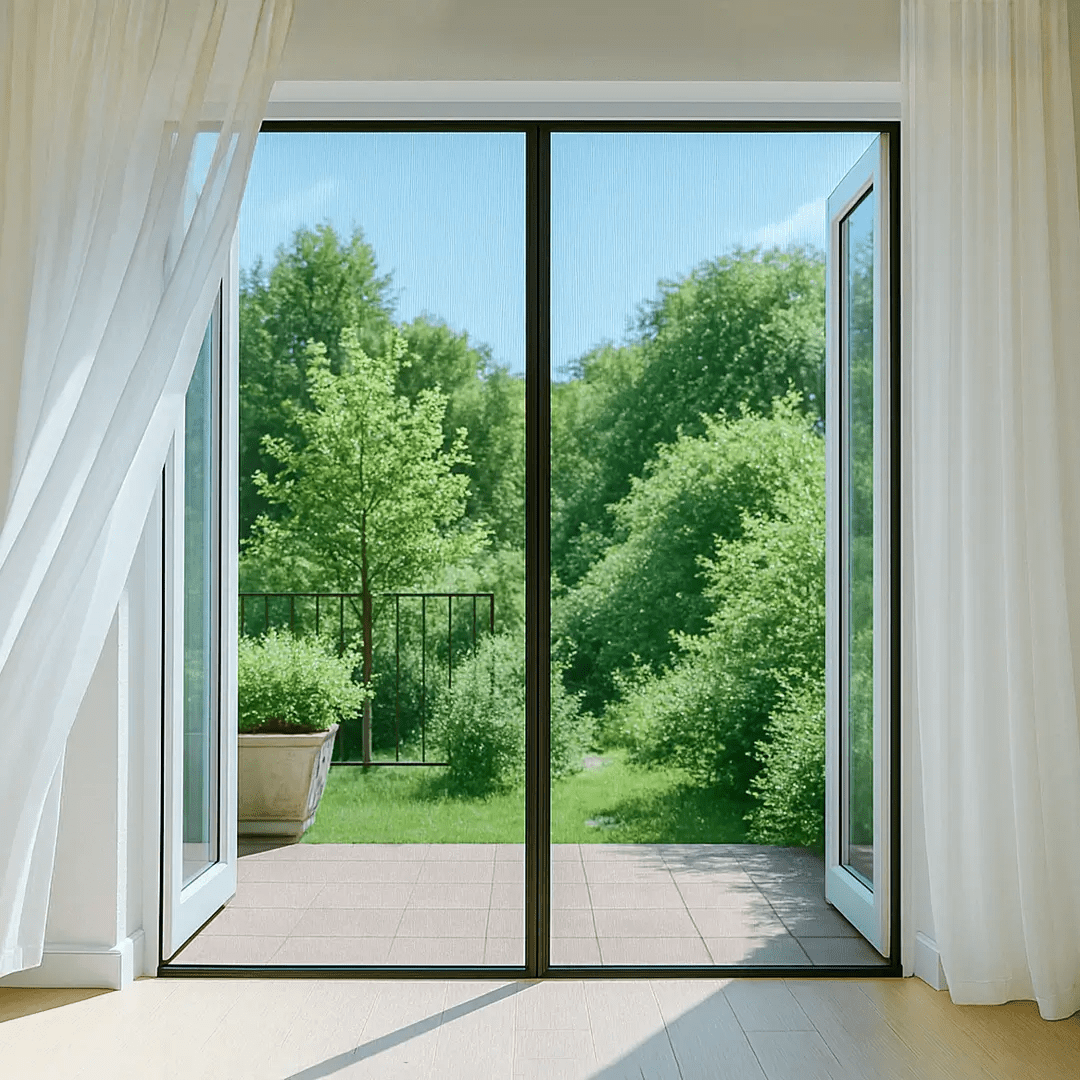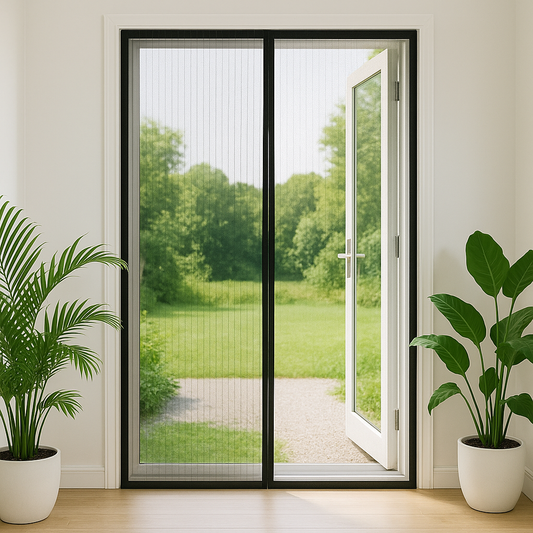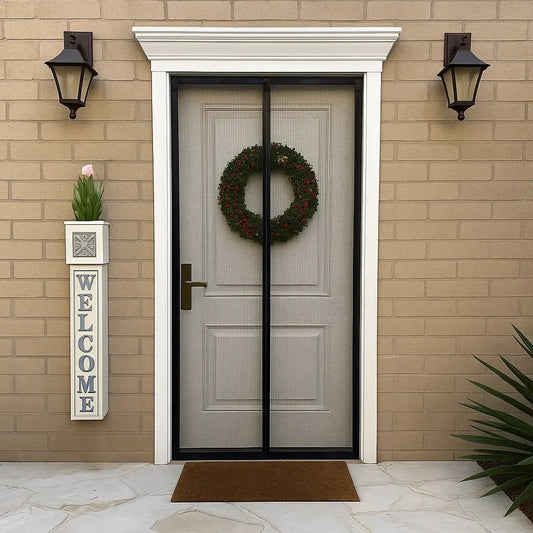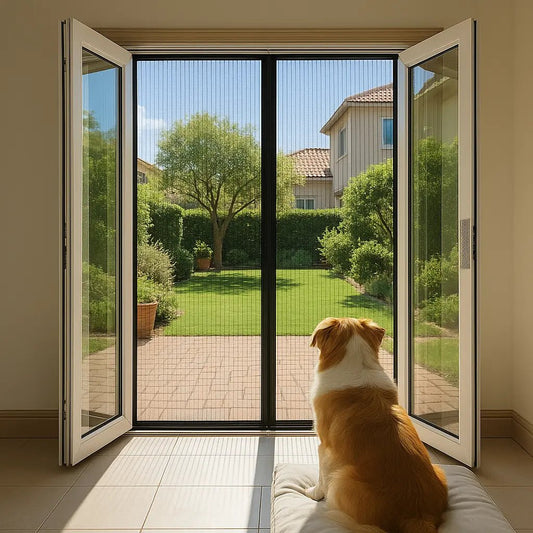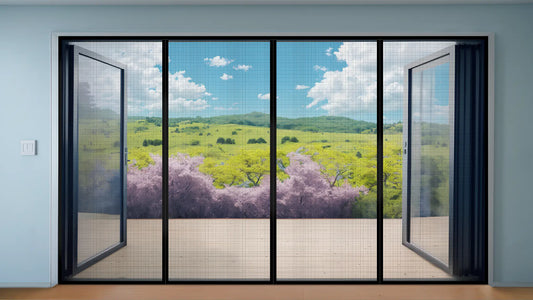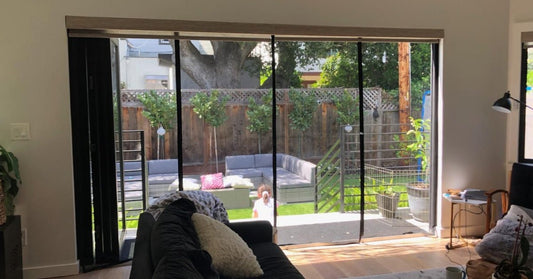The Ultimate Guide to Mesh Screen: Choosing the Perfect Screen Material for Your Project
Y.Walter
It’s the invisible hero of summer, the silent guardian of your home's comfort. The humble mesh screen is the fundamental material that allows you to throw open your windows and doors to a refreshing breeze without inviting in a host of unwanted pests. When it's time to repair a torn window screen, replace a flimsy patio door screen, or build a brand-new screen porch, your project will begin with a simple but crucial choice of screen material.
This is your definitive guide to the world of rolled screening. We'll demystify the different types of window screen material available, from standard fiberglass to heavy-duty pet screen. We'll explore the best screen door material for high-traffic areas and discuss how buying large rolls of screen for porches can save you a significant amount of money. We'll answer the all-important questions: "how much is a roll of screen?" and "how much does a roll of screen cost?"
Finally, we'll look beyond just the screen mesh roll itself and explore a modern, all-in-one system that can make screening your doorways easier, faster, and more convenient than a traditional DIY re-screening project. Let's unroll the options and find the perfect screening material for you.
Decoding the Terminology: It's All in the Mesh
As you start shopping, you'll see a dozen different terms that all mean roughly the same thing: screen wire, screen fabric, window screen fabric, and screen mesh material. For the most part, these all refer to the woven mesh that you purchase in a window screen roll to create a barrier against insects. Don't get too hung up on the names; focus instead on the actual material the mesh is made from.
Types of Screen Material: A Breakdown of Your Choices
The type of screening material you choose will have the biggest impact on your project's durability, appearance, and cost. Here are the most common options you'll find in a screen mesh roll.
Fiberglass Screen: The All-Around Champion
This is the most popular and common window screening material for a reason.
- What It Is: A woven mesh made from fine fiberglass strands and coated with a protective layer of PVC vinyl. It's a type of plastic screen mesh material.
- Pros: It's the most affordable option, it won't crease or dent like metal, it resists rust and corrosion, and it's very easy for beginners to work with due to its flexibility.
- Best For: Most residential windows, a patio screen mesh in low-traffic areas, and budget-conscious projects.
Aluminum Screen: The Crisp and Clear Classic
An aluminum wire screen roll is a step up in durability from standard fiberglass.
- What It Is: A mesh woven from fine aluminum wires with a protective finish. It's a common choice for a wire mesh screen for windows.
- Pros: Offers excellent visibility and a crisp, clean look. It's stronger than fiberglass and won't sag over time.
- Best For: Windows where clarity is a top priority, and for homeowners who prefer a more rigid screen wire.
Pet-Resistant Screen: The Heavy Duty Screen Material
If you have pets, this is the only choice that makes sense.
- What It Is: An incredibly strong and tear-resistant mesh made from thick, vinyl-coated polyester. It's many times stronger than standard fiberglass.
- Pros: Specifically designed to withstand claws, paws, and punctures from dogs and cats. It's the ultimate heavy duty screen material for high-traffic areas.
- Best For: The best screen door material for homes with pets, screening in a fiberglass porch screen where animals will be present, and any area that needs maximum durability.
Other Specialty Screens
- Solar/Sun-Control Screen: This dense mesh is designed to block 75% or more of the sun's heat and UV rays, which can help keep your home cooler and prevent your furniture from fading.
- No-See-Um/Tiny Insect Screen: This mesh has a much finer weave designed to block even the smallest insects like gnats, which are common in coastal or marshy areas.
SORA_PROMPT: A satisfying close-up, slow-motion shot of a brand new window screen roll unfurling across a workbench. The camera follows the edge of the screen as it lays flat, showcasing the perfect, uniform weave of the screen mesh material. The lighting is bright and clean, emphasizing the quality and potential of the raw material for a DIY project.
Answering the Cost Question: How Much Does a Roll of Screen Cost?
One of the most common questions is "how much is a roll of screen?" As of mid-2025, here are some typical price ranges for a standard 36-inch by 25-foot roll of screening material. Keep in mind that prices for porch screening rolls, which are much larger, will be higher.
- Standard Fiberglass Screen Roll: $20 - $35
- Aluminum Screen Roll: $30 - $50
- Pet-Resistant Screen Roll: $55 - $75
- Solar Screen Roll: $60 - $85
As you can see, choosing a heavy duty screen material like pet screen is an investment, but it can save you the cost and hassle of re-screening a torn door every year.
Choosing the Right Screen Door Screen Material for Your Project
The right material depends entirely on the job.
- For Windows: A standard fiberglass or aluminum window screen mesh roll is usually the perfect choice for a window screen mesh replacement.
- For Porches: Because of the large surface area, you'll need large rolls of screen for porches. Fiberglass is the most economical choice for a patio screen mesh roll, but if you have pets who will be on the porch, investing in pet screen is highly recommended. It's the best screen wire for porches that will see a lot of activity.
- For Doors: A door is a high-impact area. While standard fiberglass can work for a screen door material, upgrading to pet-resistant screen is a smart move, even if you don't have pets, as it makes for a much more durable mesh outdoor screen.
The Modern Alternative: When the Screen Material Isn't the Whole Problem
Buying a roll of screening material is the first step, but it's not the whole story. You still need a straight, sturdy frame to put it in, the right tools for the job, and the skill to get a tight, professional-looking result. What if your door frame is bent, the hardware is broken, or you simply want a more convenient solution?
This is where an all-in-one system like a custom-fit magnetic screen door from Coverwith offers a smarter alternative.
More Than Just Mesh: A Complete System
Instead of just selling you the screen fabric, a Coverwith door is a complete screening system.
- It's the Screen AND the Frame: The durable mesh comes with a reinforced fabric border that acts as a flexible, damage-proof frame, and it includes the entire mounting system.
- Easier Than a DIY Re-screen: For many people, the simple, tool-free installation of a magnetic screen is much faster and less frustrating than the meticulous process of re-screening a traditional frame. There's no spline to wrestle with and no risk of making a bad cut.
- The Ultimate Heavy Duty Screen Material System: The durability comes not just from the mesh, but from the design. There are no rigid parts to bend, no hinges to break, and no rollers to jam. It absorbs impacts and flexes, making it incredibly resilient in a high-traffic doorway.
- Custom Fit Without the Work: It arrives perfectly sized to your opening. You get all the benefits of a custom project without any of the difficult measuring, cutting, or potential for error.
While a window screen roll is perfect for fixing windows, when it comes to the complex demands of a doorway, a complete system is often the smarter, simpler, and more convenient choice.
Conclusion: The Right Material for a Better Home
Choosing the right mesh screen is the foundation of any successful screening project. From the affordable versatility of a fiberglass window screen roll to the rugged durability of a heavy-duty pet screen, there is a screen material perfectly suited for your needs. By understanding the differences and matching the material to the application—whether it's a small window or a massive porch—you can create a comfortable, bug-free, and long-lasting addition to your home.
And as you plan your project, remember to think about the whole system. For simple repairs, a roll of screening material is your best friend. But for high-traffic doorways where convenience and durability are paramount, a modern, all-in-one magnetic screen door can offer a superior solution that's easier and more effective than you ever imagined.
Ready to Take on a Door Project?
You've just become an expert on screen mesh! Whether you're using a roll for a DIY repair or choosing a new door system, a perfect installation is what makes it all work. For expert tips and guides on attaching a screen door of any type, our comprehensive pillar page has all the information you need.
[Master Your Screen Door Installation Skills]
Frequently Asked Questions About Mesh Screen
How much is a roll of screen?
The cost depends on the material and size. In 2025, a standard roll of fiberglass window screen mesh (36" x 25') costs about $20-$35, while a similar-sized roll of heavy-duty pet screen can cost $55-$75.
What is the best screen door material for a home with a large dog?
Without question, a pet-resistant screen (often called "pet screen") is the best choice. It's made of an extremely durable vinyl-coated polyester that is designed to resist tears and punctures from claws and paws.
What is the difference between aluminum screen wire and fiberglass screen?
Aluminum is a metal mesh that is more rigid, offers a crisper view, and won't sag, but it can be permanently dented or creased. Fiberglass is a flexible fabric that is more affordable and easier to install for beginners because it won't crease, but it can sag over time.
Can I buy large rolls of screen for porches?
Yes. Screen material for porches is sold in much wider and longer rolls (e.g., 72 inches wide by 100 feet long) to allow you to create large, seamless panels. Buying porch screening rolls is the most economical way to screen in a large area.
Is "plastic screen mesh material" good quality?
"Plastic screen" usually refers to standard fiberglass mesh, which is coated in PVC vinyl (a type of plastic). It is the most common and popular screening material in the world and offers an excellent balance of durability, visibility, and cost for most residential applications.
